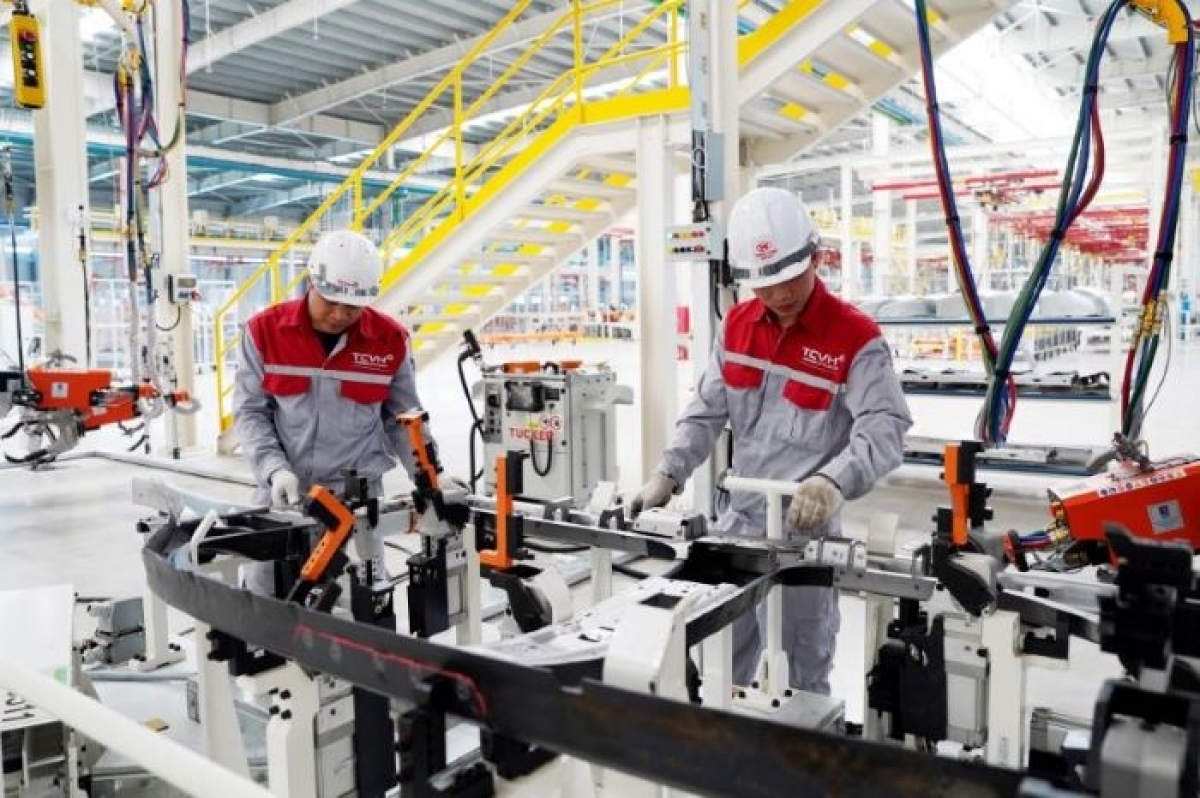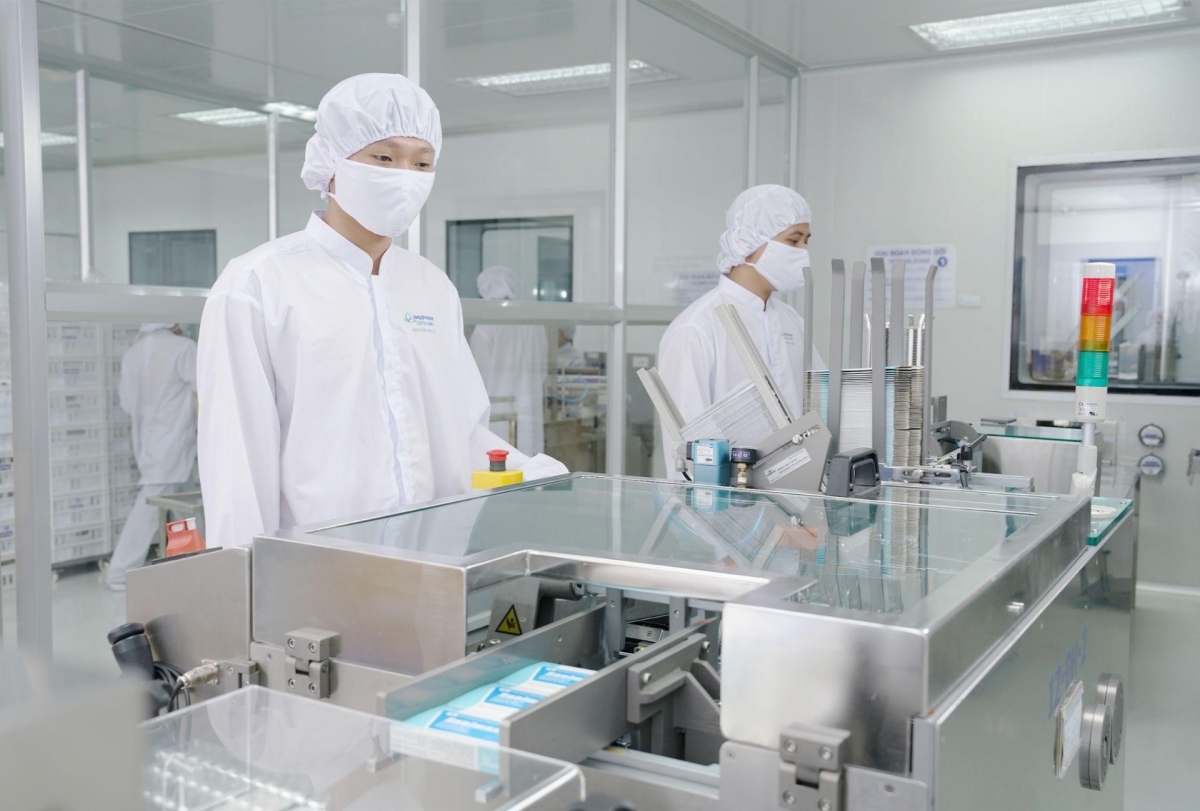INTERNATIONAL INVESTMENT
AND PORTAL
This shift marks a pivotal moment for large Vietnamese tech companies, an opportunity to step up and establish their place in the global AI value chain.
While the first wave of AI was dominated by general-purpose models serving the masses, the next wave is witnessing a significant shift: Vertical AI – AI tailored for specific sectors and industries such as healthcare, energy, manufacturing, and automotive – is beginning to assert its value. Many technology experts believe this will be the next major driver of economic value in AI commercialisation. AIM Research estimates the global vertical AI market will surpass $100 billion by 2032.
From AI-assisted diagnostic systems in healthcare, smart factory operation management, to financial assistants in the banking sector, AI is becoming increasingly personalised for each industry. According to Gartner, by 2026, 80 per cent of enterprises will have adopted domain-specific AI agents.
This creates opportunities for businesses with strong technological capabilities, computing infrastructure, and solutions, as well as deep domain knowledge and agile, flexible deployment capacity, to build AI agents – digital colleagues that enhance productivity, efficiency, and work quality. With a comprehensive AI competency, from infrastructure to model development, and hands-on experience solving domain-specific problems both domestically and internationally, FPT is staying ahead of the curve with practical, value-focused approaches that solve major challenges for clients worldwide.
In Japan – a highly developed market facing mounting pressure from legacy systems, many businesses still operate on decades-old software platforms. These systems, consisting of millions of lines of outdated code, incur high operating costs, low efficiency, and present significant challenges in integrating with modern technologies. A major real estate company in Japan, for example, once required months to process internal data due to its outdated, fragmented, and automation-resistant system.
FPT has partnered with enterprises in Japan and other countries in their digital modernisation journeys, leveraging the power of AI models to interpret, analyse legacy code, and automate data processing workflows. With xMainframe, a proprietary FPT technology, FPT has shortened project timelines by 30 per cent while helping engineers quickly grasp old systems with up to 90 per cent accuracy. As a result, clients can now update data weekly instead of monthly, significantly improving operational efficiency.
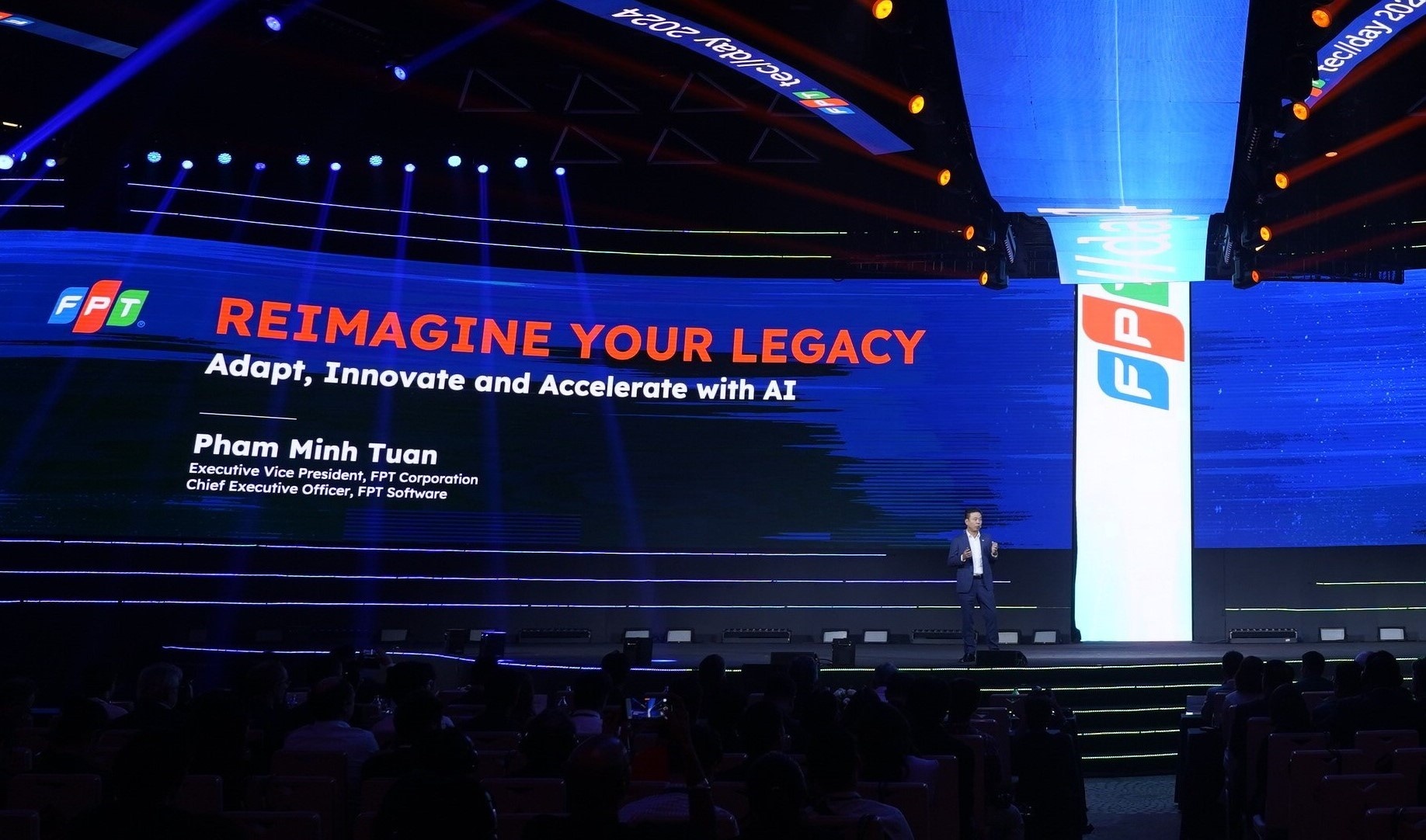 Pham Minh Tuan, executive vice president, FPT Corporation and CEO, FPT Software speaking at FPT Techday 2024
Pham Minh Tuan, executive vice president, FPT Corporation and CEO, FPT Software speaking at FPT Techday 2024
This is just one of many examples illustrating how FPT is harnessing AI to address practical, domain-specific problems. "We’re focusing on developing specialised AI for specific verticals – deep niches that remain largely untapped, where AI can truly create real, differentiated value," said Pham Minh Tuan, executive vice president of FPT Corporation and CEO of FPT Software.
In the manufacturing sector, for instance, FPT has developed the I2 platform, enabling businesses to monitor quality, predict maintenance, and optimise operational performance through the analysis of image and sound data from production lines. In finance and insurance, the IvyChat solution applies Large Language Models (LLMs) to automate data analysis, support sales performance evaluation, and enhance data management. Regarding healthcare, FPT’s CareMate solution – particularly its iTelemate feature – enables doctors to quickly grasp patient conditions via summarised medical histories and real-time multilingual transcription, thereby improving consultation quality and personalised communication.
These solutions are grounded in technological strength while reflecting deep domain expertise and a thorough understanding of the unique needs of each market, thereby delivering practical value to enterprises.
One of the key factors enabling FPT to stay ahead in domain-specific AI lies in its internal organisational transformation. The company is gradually reshaping its workforce in a way that combines humans with AI – creating an AI-augmented workforce, where each employee is supported by a personal AI assistant that helps optimise daily work – from execution to creativity and global integration.
"While AI still struggles with user empathy, cultural sensitivity, and experience design, it can serve as a platform for training, supporting, and developing a new generation of workers with superior speed and productivity. This is how humans and technology can evolve together – not as competitors, but as collaborators, driving improvements in both work quality and life," Tuan said.
It is evident that in the global landscape that is rapidly shifting towards domain-specific AI, FPT is solidifying its role as a pioneer – not only through technological capabilities but also through a deep commitment to organisational and human transformation. This adaptability will be the key to building sustainable competitive advantage and propelling the company forward in the AI era.
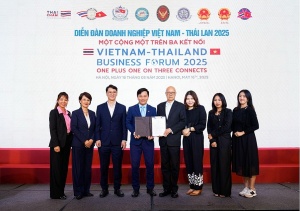 FPT expands strategic partnerships in Thailand
FPT expands strategic partnerships in Thailand
Vietnamese IT firm FPT Corporation (FPT) on May 16 entered into strategic partnerships with two of Thailand’s leading enterprises, Sunline and Buzzebees to deepen technological and business collaboration between the two nations amid their shared momentum in digital economic growth.
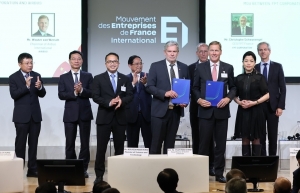 Airbus and FPT deepen digital partnership
Airbus and FPT deepen digital partnership
Airbus signed a new supplier agreement with leading Vietnam-based technology and IT services provider FPT on June 11 to strengthen their long-standing collaboration.
 FPT AI Factory named among world’s fastest supercomputers
FPT AI Factory named among world’s fastest supercomputers
The Vietnamese cloud provider tops Japan’s commercial rankings in HPC performance.




